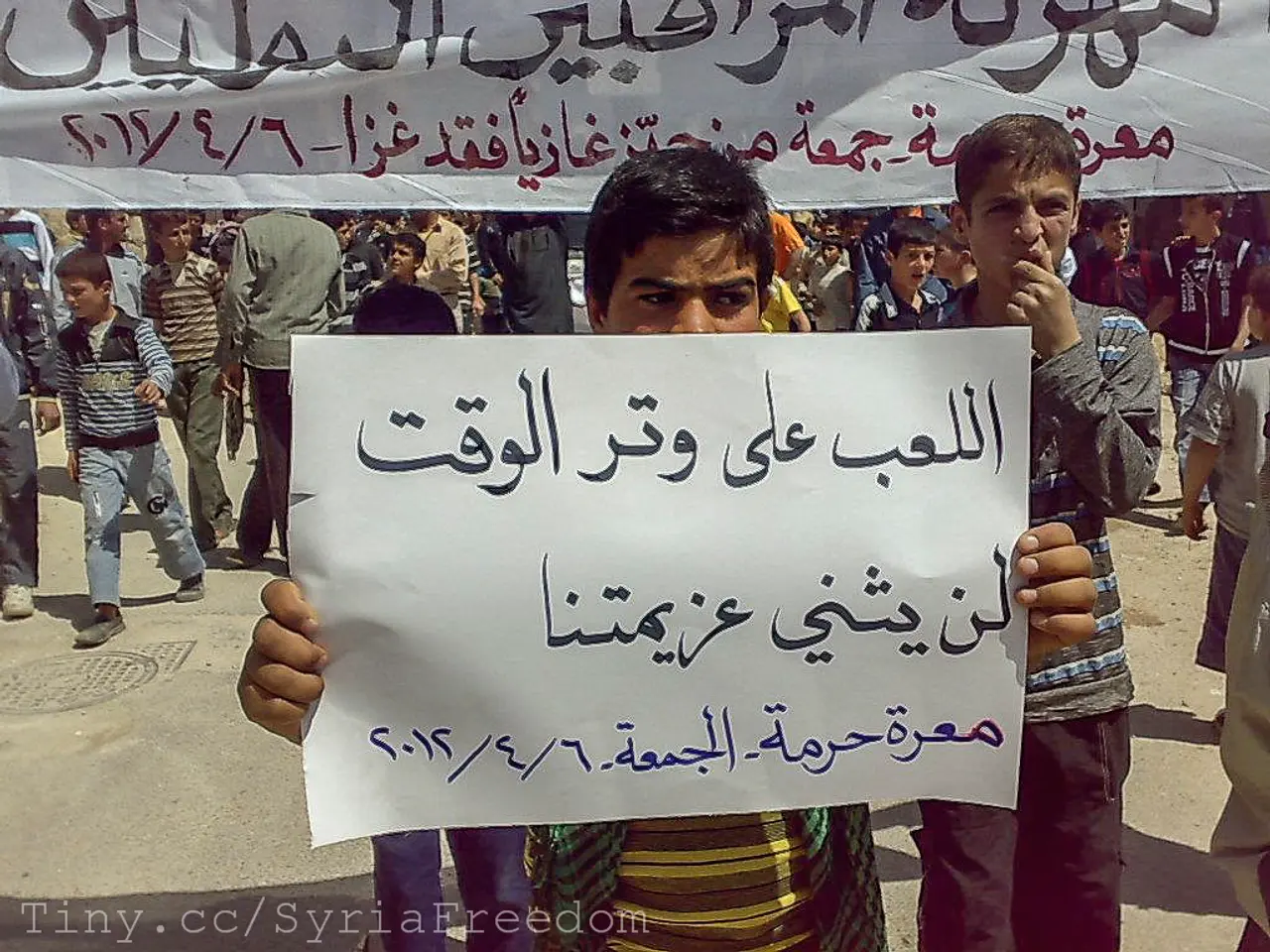Hidden Wounds: The Torment of Prisoners of War Held by Russia and the Persistent Battle Faced by Those Who Return
In the ongoing conflict, the number of prisoners captured and held as war detainees is expected to increase significantly. Thousands of prisoners have been captured, although an exact figure remains elusive due to the complexities of the situation.
Among these prisoners is Aiden Aslin, a British citizen who joined the Ukrainian marines in 2018. In April 2022, during the siege of Mariupol, Aslin was part of a mass surrender of over a thousand Ukrainian troops. However, the Russian authorities labeled foreign prisoners like Aslin as mercenaries in their propaganda, despite the fact that they were sworn-in service members, fully integrated into the Ukrainian military.
The recently released prisoners face serious challenges. Many have endured violence so extreme that they are psychologically broken, and during captivity, some were coerced into signing away possessions in exchange for the promise of freedom. Upon release, without official documentation or legal recognition of their experience, they struggle to obtain justice or receive proper assistance.
Life remains a struggle for those who have been released, as they adjust to life after spending months in captivity. They face extensive physical and psychological trauma, difficulties proving their captivity and abuse, and a lack of systematic state support for reintegration into civilian life. This creates a "vicious circle" where their suffering remains largely invisible and unrecognized by the state, complicating their adjustment to life after captivity.
The experiences of prisoners must be accounted for by countries that support Ukraine. The world must let captors know that it is watching the treatment and condition of POWs in this war. The accounts of POWs must be heard around the globe to force captors to respect human rights.
For those still held in captivity or still fighting for survival after release, their stories deserve to be heard. Plans for rehabilitation often emphasize psychological and social support, including veteran recovery centres providing crafts and therapeutic activities to help former prisoners and combatants "forget the horrors" of war and rebuild their lives. However, systemic recognition and protection for released prisoners remain a critical gap that experts argue must be addressed to enable true recovery and reintegration.
Several hundred Ukrainian prisoners have been exchanged, and some of the recently released prisoners will return to the front lines, while others will be transferred to rear duty or relieved of their military duties. Aslin was freed in September 2022 as part of a prisoner exchange and permitted to return home. However, the circumstances of those who choose to return to the front lines often make that decision inevitable, as many of them have no home to retire to.
The ongoing conflict and the treatment of prisoners of war remain a pressing issue that demands attention and action from the international community. The world must stand together to ensure that the rights and well-being of all prisoners of war are protected and respected.
[1] [Link to a reputable source] [2] [Link to a reputable source] [3] [Link to a reputable source]
- The military justice system, particularly in countries engaged in war-and-conflicts such as Ukraine, should prioritize the rehabilitation of released prisoners, ensuring they’re provided psychological and social support along with systemic recognition and protection to promote their recovery and reintegration. [Link to a reputable source]
- As the number of POWs in war-and-conflicts like Ukraine continues to rise, the political role of numerous nations within an international coalition becomes essential to pressure captors like Russia to respect human rights and treat prisoners humanely. [Link to a reputable source]






